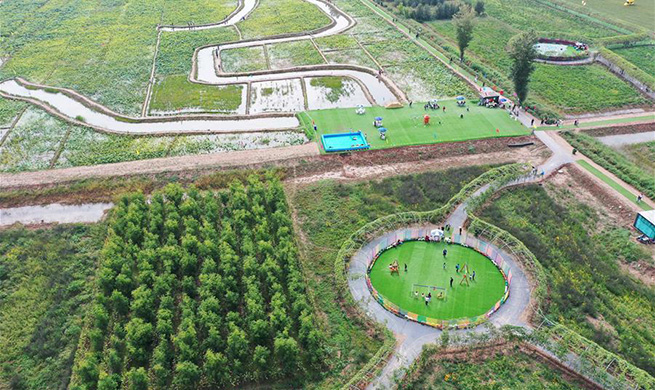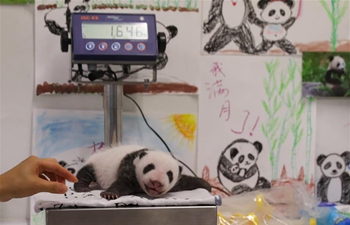JERUSALEM, Sept. 15 (Xinhua) -- Researchers from Israel and Spain found that unicellular organisms are able to learn and preserve memories, which may lead to new memory treatments for Alzheimer's patients, Israel's National Institute of Biotechnology in the Negev (NIBN) said Sunday.
The study, published in the journal Nature Communications, was conducted by researchers from NIBN, Ben Gurion University, and the University of the Basque Country in northern Spain.
The team consists of researchers with different scientific backgrounds including brain researcher, mathematician, cancer researcher and pathologist.
More than 100 years ago, Russian physiologist Ivan Pavlov discovered the basics of animal learning by conducting a series of experiments that show dogs learning to associate signals, like particular sounds, with food.
These findings, in the field of associative learning, paved the way for a whole field of behavioral science being studied.
So far, associative learning, which is the main type of learning in which creatures respond appropriately to changes in their environment, has been found in a huge variety of creatures, from mollusks to humans, but has never been observed in single-celled ones.
The Israeli-Spanish researchers first demonstrated that learning also exists in amoeba proteus microorganisms, which move through typical crawling.
The researchers placed the amoebas in an electric field with only food on the positive pole, and discovered that most of them moved to this side, contrary to their natural tendency to move to the negative pole in an electric field.
Surprisingly, even after removing the food, the amoebas continued to move to the positive side, which means they "remembered" that it had food.
The researchers explained that memory in single-celled creatures is stored in complex networks of proteins in the cell, and changes frequently according to the environment.
According to the researchers, the study opens a new era of exploring new mechanisms by which cells adapt to their environment.
Understanding these mechanisms may further contribute to a better understanding of important biological processes such as cell movement during embryonic development, cancer cell movement, as well as learning and memory processes.

















